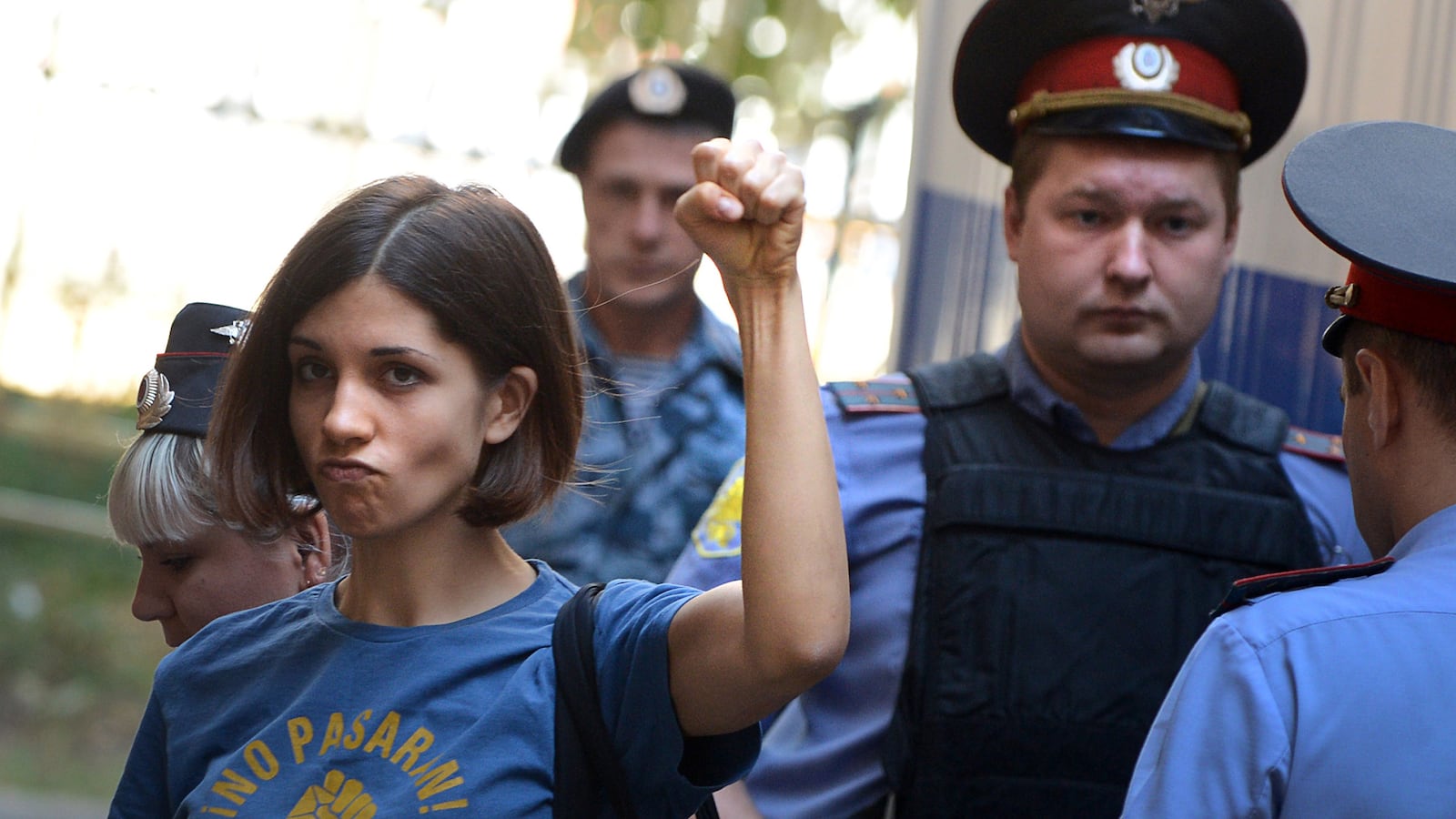Finally, after more than three weeks of looking for her, and rumors that she had been killed, Pyotr Verzilov finally found his wife at a Siberian hospital.

Verzilov, a radical Russian artist and husband of the Pussy Riot activist NadezhdaTolokonnikova, received a phone call yesterday morning from an acquaintance: “Your wife is at the TB clinic in Krasnoyarsk,” he was told. After 21 days, during which Tolokonnikova was missing in the Russian prison system, somewhere between the Mardova region and Siberia, the news was “ a big joy.” Besides, Verzilov did not feel particularly alarmed, as Tuberculosis Hospital No. 1, despite its name, treats a wide range of diseases. Hospital authorities allowed Verzilov to speak to his wife on the phone yesterday, and today, he was invited to come to the hospital, though he would only be permitted to speak to his wife by video linkup.
The happy news reached Verzikov in the depth of the taiga, 300 kilometers away from Krasnoyarsk, where he waited for his wife’s arrival at a different prison, the IK-50 women's prison. Earlier on Friday, Verzilov arrived at the Krasnoyarsk hospital to speak with his wife, whom he gently calls Nadia. “It was strange to be so close with Nadia, in two different buildings of the same hospital but see each other on video,” Verzilov told The Daily Beast on the phone. He was not able to record the video conversation, as the convoy setting up video cameras was in the same room with him. “She seemed to be feeling well,” Verzilov said and added. “She looked so beautiful in her new dark blue-and-white checkered prison pajamas.”
“She seemed to be feeling well,” Verzilov said and added. “She looked so beautiful in her new dark blue-and-white checkered prison pajamas.”
Largely popular and influential in the West and less understood in their own country, Nadya and her Pussy Riot compatriots have “shaken up the [prison] system” in Russia, says Zoya Svetova, an independent observer of the country’s corrections system. Activism by jailed members of the band from behind bars has included hunger strikes and numerous appeals to ease harsh penal conditions. After Tololonnikova published a letter from prison earlier this year, human rights activists and journalists received many letters from inmates describing similarly dismal conditions they suffered. “Thanks to Tolokonnikova’s efforts, women at her former prison do not have to sew for 16 hours every day, they now work only for eight hours,” Svetova says.
Verzilov and Tolokonnikova were allowed to talk for only 15 minutes. Tolokonnikova described to her husband her life during her transfer, which took weeks on the road. She had no chance to send him a note, as the guards both on the trains and occasional stops at transit prisons were watching her closely. At the hospital she had more comfort and peace, Verzilov said. He reported that his wife was reading two books: the most recent novel by Russian modern artist Vladimir Sorokin, and Russian president Boris Yeltsin’s biography. He brought her more books and her favorite Medovik, a honey cake he meant to give her for her birthday last week. “She was very happy to hear news on complaints she had previously filed, prosecutors decisions and investigations against violations against her at her previous prison Mordova,” Verzilov said. “I also quickly told her about one more of our friends facing a five year sentence for art activism,” he said, referring to a man who had nailed his private parts to Red Square as an act of protest. “Without seeing pictures of [Pyotr] Pavlensky nailed on the Red Square, she could not imagine the scene-- she asked me to tell her more later”. Next week, Verzilov hoped, he might have a chance to have a real date with his wife.






